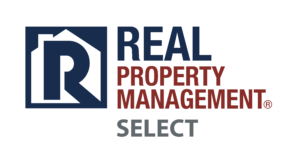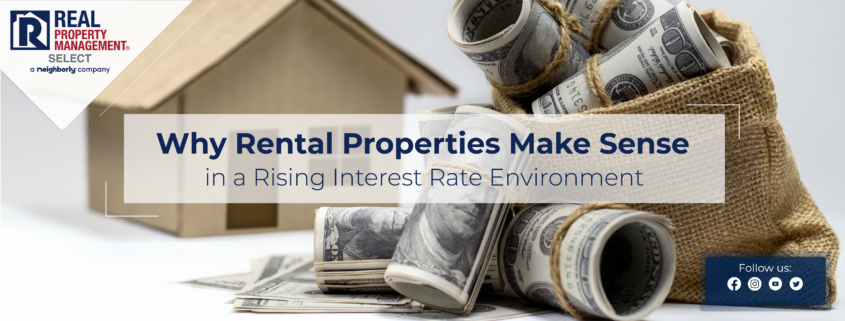Maximizing Profits: Why Rental Properties Make Sense in a Rising Interest Rate Environment
Did you know that as an investor in rental properties, one of your most powerful tools is the 30-year fixed-rate mortgage, especially if you’re based in the U.S? This type of mortgage stands out among its global counterparts as most countries tend to lean towards adjustable, variable, flexible, or renegotiable rate mortgages. These alternatives carry a level of unpredictability, subjecting investors to the potential risk of sudden increases in the interest rate during the property’s tenure.
Fixed-rate mortgages are not only great for providing immunity against unforeseen rate hikes, but there have also been instances where interest rates were incredibly low, making the cost of borrowing money seem inconsequential.
But what’s the scenario when interest rates start to climb potentially to unfamiliar levels? Suddenly, monthly mortgage payments become noticeably steeper, impacting your cash flow returns. Should this mean halting or slowing down investments in rental properties? And more importantly, how can you counteract higher interest rates to continue garnering profits from your rental property?
Determining the best course of action requires an understanding of how rental properties generate income, the factors within your control that affect its profitability, and what to look for in a prospective rental property. This knowledge can give you the upper hand in achieving successful returns, even amidst rising mortgage payments.
The Long-Term Investment Appeal of Rental Properties
Let’s cut right to the chase: rental properties are a sure-fire, long-term investment plan. Of course, there are instances where individuals might score a sizable equity profit by enhancing the property’s value or by clinching a lucrative deal that offers considerable cash flow right away. However, bear in mind, like fine wine, rental properties tend to yield more substantial profits over an extended period.
Unraveling the Profit Potential of Rental Properties
Ever wondered why rental properties have such a coveted status in real estate investing? Allow us to shed light on their lucrative potential and how they are profitable money-minting machines.
Here are five primary ways rental properties shower you with profits:
- Generating steady cash flow
- Witnessing appreciation in their value
- Availing tax benefits
- Building equity through mortgage payments
- Serving as a hedge against inflation
Once you comprehend the intricacies of these income streams
The Power of Rising Rents
Let’s delve into an essential point here, the expected cash flow from your rental property is based on current rents, not future ones. These rents tend to surge over time due to two primary driving forces: property appreciation and inflation.
Can you guess what remains steadfast, irrespective of the rise in property value or the inflation rate? Yes, you got it right! Your fixed-rate mortgage payment remains the same—no surprises or increases over time.
This stability, in turn, broadens your cash flow margin as you increase your rental rates over your property’s lifespan.
Sure, your outlays such as property taxes and insurance may slowly creep upwards over time. However, these hikes are typically minimal compared to the growth rates of rental income. Ultimately, you’ll notice your rental earnings leading progressively further away from your immutable mortgage expense. Consequently, your profits are primed to experience a robust upward trajectory.
Boosting Profits and Reducing Costs
As we focus on the long haul, remember there are proactive strategies to build equity faster. Allow me to walk you through some.
Enhancing the Property
Increasing the appeal of your property can fuel its value and demand. While time often fuels profit growth by enhancing your property’s value and rents, there are immediate steps you can take. These steps can make your property more desirable and expedite profit increases.
Rehabbing your property is one straightforward way to do this. Personalizing and uplifting a property can do wonders in raising its overall value while allowing you to request higher rents. Essentially, you’re accelerating profits beyond what the increased interest rate costs you.
Refinancing your Loan
Remember, the higher interest rate isn’t a life sentence. Like property and rents, mortgage interest rates also flutter. If the rates dip below your locked rate, refinancing your property at that lower rate could be a smart much time hesitating, or you just might lose the deal. With the right timing, gentrification can certainly result in bonus profits.
Inflation: Friend or Foe?
While inflation mostly adds stress to our lives, it can be advantageous for rental properties. Your fixed-rate mortgage stays the same over the loan tenure, regardless of the dollar’s fluctuation. Essentially, you’re repaying the loan with dollars from yesteryears, not the future.
Consider this comparison: mortgage interest paid on a 30-year fixed-rate mortgage versus buying the same property with cash. Many experts argue that, thanks to inflation, the former scenario results in less overall expenditure.
So, when inflation rates go beyond your mortgage interest rates, your profits stay ahead of your mortgage expense.
Key Takeaways
Now, you might think that holding onto a rental property for extended periods will inevitably be profitable. However, this is not always the case. Multiple factors can impact profitability. It’s important to note that not all speculations pan out and such risk-taking should be avoided or minimized.
The aim of this article is not to sell you on the idea that any property can be profitable. Rather, it’s to help you understand how to analyze potential rental properties and realize that a higher interest rate won’t drain as much of your income as you might think. Luckily, Bigger Pockets How To Buy Rental Property Guide provides the insights you need to get your portfolio off to a terrific start.
Lastly, stay educated. What may seem like a high-interest rate could be just “normal” given historically low rates. Resist the perception that low-interest rates are necessary for profitability. And if the interest rate still stresses you, you might want to consider more down payment to decrease the monthly payments and potentially bag a lower interest rate.
If you’ve navigated higher interest rates, we’d love to hear your experiences. What innovative financing structures worked best for your rental properties? And how did they fare 10 or 20 years down the line? Drop a comment and let us know!




Leave a Reply
Want to join the discussion?Feel free to contribute!